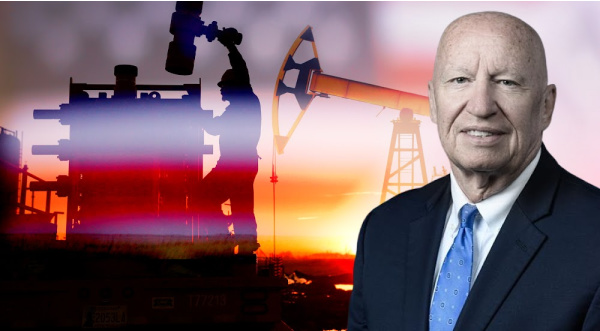
An oil and gas industry group led by the American Petroleum Institute described the proposed policy as “unreasonable,” “punitive,” and “unnecessary. (Source: Photo collage by Hart Energy; images by Hart Energy, Shutterstock.com)
As Democrats thrash out their $3.5 billion budget plan, one element is causing particular anxiety in the oil and gas industry: a fee on methane emissions.
The idea of the fee—effectively a pollution tax—is to create a financial reason for companies to clamp down on the roughly 13 million tonnes of leaked gas that enters the atmosphere each year from across their supply chains.
But the industry is up in arms. The policy, it says, would raise production costs that would ultimately wind up on consumers’ bills—and risks unfairly hitting companies that have taken strides to cut emissions. In a letter this week, a group led by the American Petroleum Institute (API) described it as “unreasonable,” “punitive,” and “unnecessary.”
The budget reconciliation bill, which Senate majority leader Chuck Schumer dubbed “the most significant climate action in our country’s history,” is set to overhaul the U.S. energy landscape.
Unprecedented tax incentives would drive a buildout of renewables and battery storage and transmission lines, while a proposed “Clean Electricity Payment Program” would nudge utilities into going green.
Industry backlash
But for the oil and gas industry, it is the proposed tax on methane that raised the hackles—something that has been illustrated by a flurry of correspondence over the course of the past week:
The API said it took particular issue with how charges on emissions could be calculated. Under a bill introduced in the Senate earlier this year, each company’s payment would be based on the overall emissions of a given basin and weighted by the volume of oil and gas they produce or handle. That could, in theory, let smaller highly polluting players off the hook and hurt bigger players that are making efforts. (That bill also proposed an “opt out” system if companies could calculate their own emissions).
“It could perversely disincentivize facilities with higher emissions intensities relative to the basin average from reducing their emissions [and] unfairly punish high production operators with lower emission intensities.”
The American Gas Association wrote on Sept. 7:
“The methane fee framework currently being considered would introduce a regressive tax on low-income and fixed-income Americans, ignore existing and anticipated federal regulations on methane emissions, and lessen available capital for our companies’ ongoing investments in further reducing methane emissions.”
Anne Bradbury, CEO of the American Exploration and Production Council said last week the fee “amounts to a production tax on the industry” that will be passed on to consumers.
“As American families fill their cars with gas, pay their monthly electric bill, book a family vacation, or purchase groceries, the increased costs caused by punitive tax policies will be impossible to ignore.”
Case for a fee
Methane accounted for about 10% of man-made U.S. greenhouse gas emissions in 2019. But over a 20-year period, it has 84 times the warming power of CO₂, making it a key component of the administration’s ambitions to tackle climate change.
In fact, some climate campaigners argue that cracking down on methane is the priority of priorities in the face of the climate crisis.
Schumer has suggested the fee would account for almost 10% of the emission reductions in the budget and infrastructure bills that are making their way through Congress.

For more on the budget reconciliation bill, check out a recent episode of Energy Policy Watch featuring U.S. Rep. Kevin Brady (R-Texas, 8th).
Congress has already reinstated rules abandoned by the Trump administration that clamp down on methane pollution by oil and gas producers. And the Environmental Protection Agency is set to announce plans this month to tighten these further.
Major industry players, hit by an increasingly dirty image of U.S. gas abroad, have largely welcomed the reinstatement of regulations. But advocates argue hitting the industry in the pocket is the most effective way to bring it fully on board.
“Right now, emitters do not have sufficient financial incentive to reduce methane emissions because the market value of the lost methane is much smaller than the environmental costs,” said Brian Prest, a fellow at Resources for the Future, an environmental group.
In a new paper released today, Prest argues a fee would have only small effects on natural gas prices.
A fee of $500/tonne would increase wholesale natural gas prices by $0.07-0.10/MMBtu and could nearly cut the leak rate in half, he found, while a $2,000/tonne fee would increase wholesale natural gas prices by $0.18-$0.26/MMBtu and cut leaks by as much as 70%.
“There’s a back and forth over finding the sweet spot,” Prest told Financial Times. “The methane fee that would have smaller impacts on the prices of gas while also achieving acceptable levels of reductions in methane emissions.”
This article is an excerpt of Energy Source, a twice-weekly energy newsletter from the Financial Times.
Recommended Reading
Range Resources Holds Production Steady in 1Q 2024
2024-04-24 - NGLs are providing a boost for Range Resources as the company waits for natural gas demand to rebound.
Hess Midstream Increases Class A Distribution
2024-04-24 - Hess Midstream has increased its quarterly distribution per Class A share by approximately 45% since the first quarter of 2021.
Baker Hughes Awarded Saudi Pipeline Technology Contract
2024-04-23 - Baker Hughes will supply centrifugal compressors for Saudi Arabia’s new pipeline system, which aims to increase gas distribution across the kingdom and reduce carbon emissions
PrairieSky Adds $6.4MM in Mannville Royalty Interests, Reduces Debt
2024-04-23 - PrairieSky Royalty said the acquisition was funded with excess earnings from the CA$83 million (US$60.75 million) generated from operations.
Equitrans Midstream Announces Quarterly Dividends
2024-04-23 - Equitrans' dividends will be paid on May 15 to all applicable ETRN shareholders of record at the close of business on May 7.





